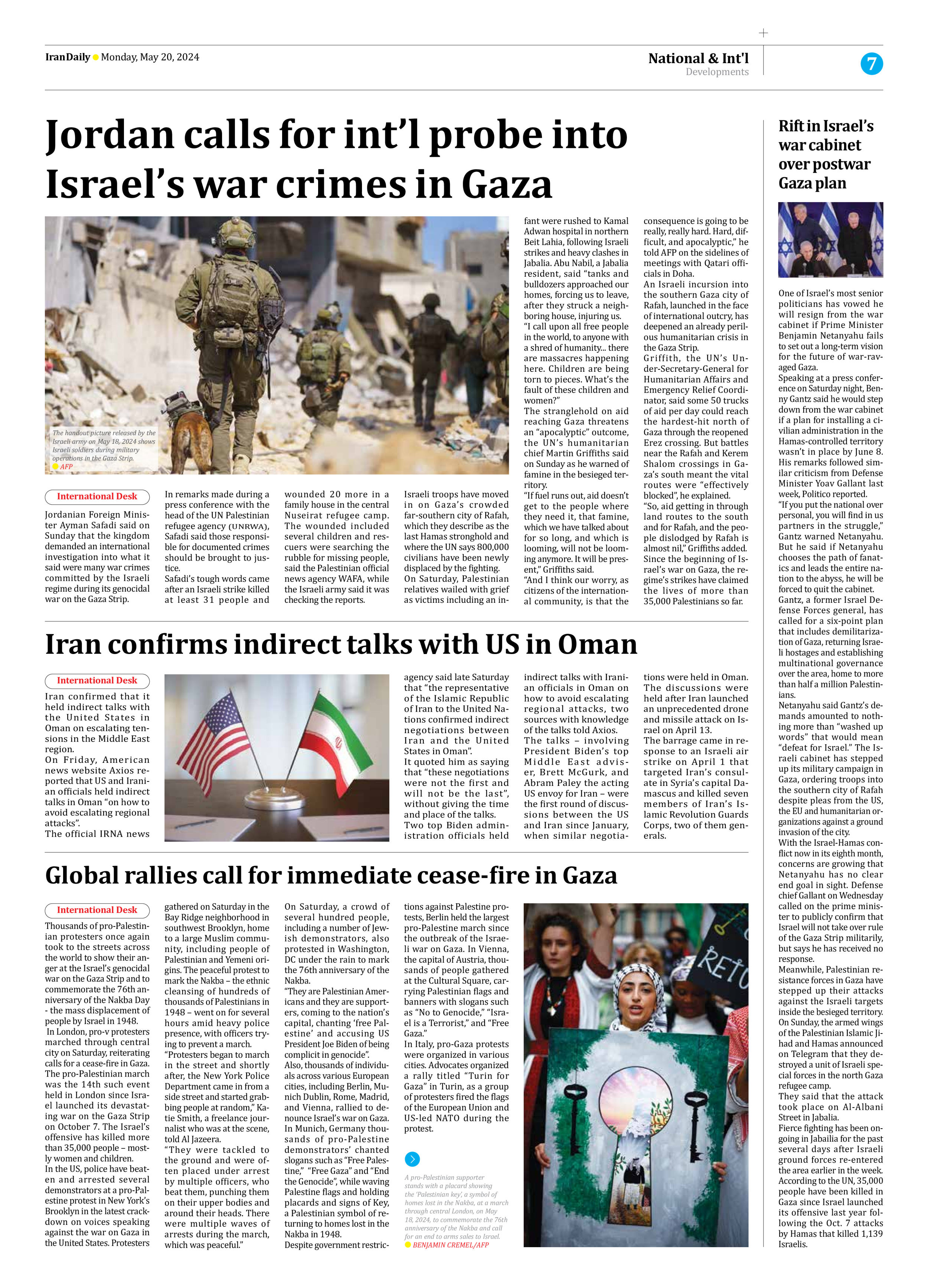
Copy in clipboard...
Jordan calls for int’l probe into Israel’s war crimes in Gaza
In remarks made during a press conference with the head of the UN Palestinian refugee agency (UNRWA), Safadi said those responsible for documented crimes should be brought to justice.
Safadi’s tough words came after an Israeli strike killed at least 31 people and wounded 20 more in a family house in the central Nuseirat refugee camp. The wounded included several children and rescuers were searching the rubble for missing people, said the Palestinian official news agency WAFA, while the Israeli army said it was checking the reports.
Israeli troops have moved in on Gaza’s crowded far-southern city of Rafah, which they describe as the last Hamas stronghold and where the UN says 800,000 civilians have been newly displaced by the fighting.
On Saturday, Palestinian relatives wailed with grief as victims including an infant were rushed to Kamal Adwan hospital in northern Beit Lahia, following Israeli strikes and heavy clashes in Jabalia. Abu Nabil, a Jabalia resident, said “tanks and bulldozers approached our homes, forcing us to leave, after they struck a neighboring house, injuring us.
“I call upon all free people in the world, to anyone with a shred of humanity... there are massacres happening here. Children are being torn to pieces. What’s the fault of these children and women?”
The stranglehold on aid reaching Gaza threatens an “apocalyptic” outcome, the UN’s humanitarian chief Martin Griffiths said on Sunday as he warned of famine in the besieged territory.
“If fuel runs out, aid doesn’t get to the people where they need it, that famine, which we have talked about for so long, and which is looming, will not be looming anymore. It will be present,” Griffiths said.
“And I think our worry, as citizens of the international community, is that the consequence is going to be really, really hard. Hard, difficult, and apocalyptic,” he told AFP on the sidelines of meetings with Qatari officials in Doha.
An Israeli incursion into the southern Gaza city of Rafah, launched in the face of international outcry, has deepened an already perilous humanitarian crisis in the Gaza Strip.
Griffith, the UN’s Under-Secretary-General for Humanitarian Affairs and Emergency Relief Coordinator, said some 50 trucks of aid per day could reach the hardest-hit north of Gaza through the reopened Erez crossing. But battles near the Rafah and Kerem Shalom crossings in Gaza’s south meant the vital routes were “effectively blocked”, he explained.
“So, aid getting in through land routes to the south and for Rafah, and the people dislodged by Rafah is almost nil,” Griffiths added.
Since the beginning of Israel’s war on Gaza, the regime’s strikes have claimed the lives of more than 35,000 Palestinians so far.







